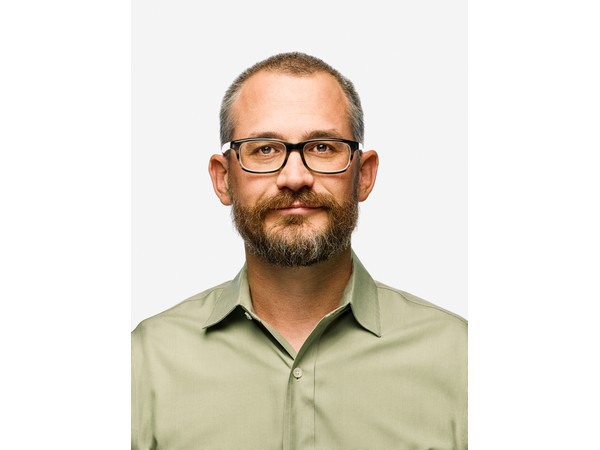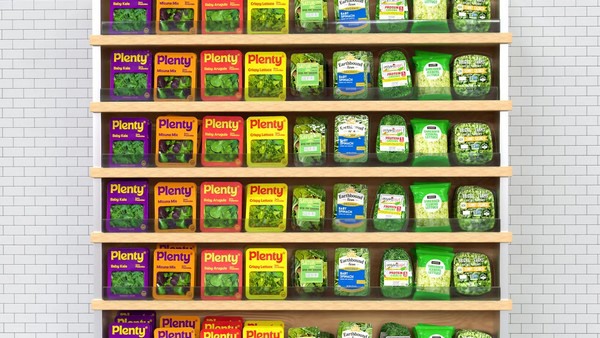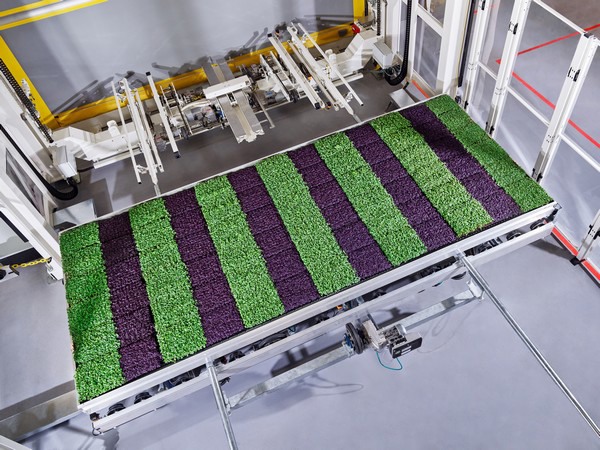With all the health concerns and supply chain disruptions resulting from the pandemic, many consumers are looking for locally and responsibly produced fruits and vegetables. And Plenty is firing on all cylinders to meet this increased demand.
According to Nate Storey, co-founder and chief scientific officer at Plenty, supply chain disruptions have sometimes resulted in Plenty’s greens being the only fresh products on grocery store shelves. The company has also seen its purchase rates increase during the pandemic, with more people consuming fresh produce. As the world looks forward to a post-pandemic “new normal”, Nate is optimistic about the future of Plenty and indoor farming.

Plenty's co-founder and Chief Science Officer, Nate Storey
“I expect that even after COVID, we will see these trends continuing. Once people really get used to eating fresh products, especially ours which are consistently good, it will be very hard for them to go back to old habits. COVID is helping us re-examine our values,” says Nate.
With respect to consumer trends in 2021, Plenty expects an extension of trends that emerged in 2020, namely the increasing number of people who are exploring home cooking options, which has also fostered an awareness of high-quality ingredients. According to Nate, “when home cooking, it doesn’t take long to really start valuing high-quality ingredients. So I think that we’ll see a growth in the quality-focused parts of the produce industry. I think that we’re going to see a trend towards boosting immune health and creating snackable products, as people begin to incorporate more produce into snacks.”
As such, quality is of the utmost importance to Plenty. The company approaches quality from three main angles, one being the real value of the product. As Nate explains, ensuring real value of their products means a commitment to offering consumers an attractive product whose packaging attracts consumers and preserves the product as long as possible.

Plenty's new product packaging
“We ask ourselves: how can we give people three weeks, a month or as much time as possible? Hopefully, the product is consumed within a few days but for people who are watching their budgets, knowing that the product will last improves the value of the product,” says Nate.
More importantly, the company is focused on the quality of the greens themselves. Through careful varietal selection and precise control of the growing environment, Plenty produces greens with the best loft, consistency, texture and nutritional quality. The company’s third approach to quality, according to Nate, is its commitment to delivering a consistent product every day of the week. This consistent production, a major advantage of indoor farming overall, allows growers to eliminate seasonality so that consumers can count on the greens’ quality at any time of the year.
Plenty’s commitment to the highest quality standards is reflected in the company’s mission, which is the provision of fresh, healthy food to people all over the world. As Nate explains, field-based agriculture currently produces only 30% of the global population’s needs for a healthy diet.

Propagation facility at Plenty's San Francisco farm
“We’re in the business of figuring out how we produce massive amounts of produce for consumers and make sure that they can supplement their diets with enough fruits and vegetables. Vertical farming and Plenty works to fill the void between 30% of what the world needs and 100% of what the world needs,” says Nate.
Plenty is also addressing consumers’ desire for sustainably produced fruits and vegetables by constantly working to improve water, space and energy use efficiency. Aside from environmental sustainability, the company strives for social sustainability by working to integrate itself into the communities where the farms are located by creating jobs and becoming a part of the local food system and culture.
 For more information:
For more information:
Plenty
Lizi Sprague
lizi@spronguepr.com
www.plenty.ag
